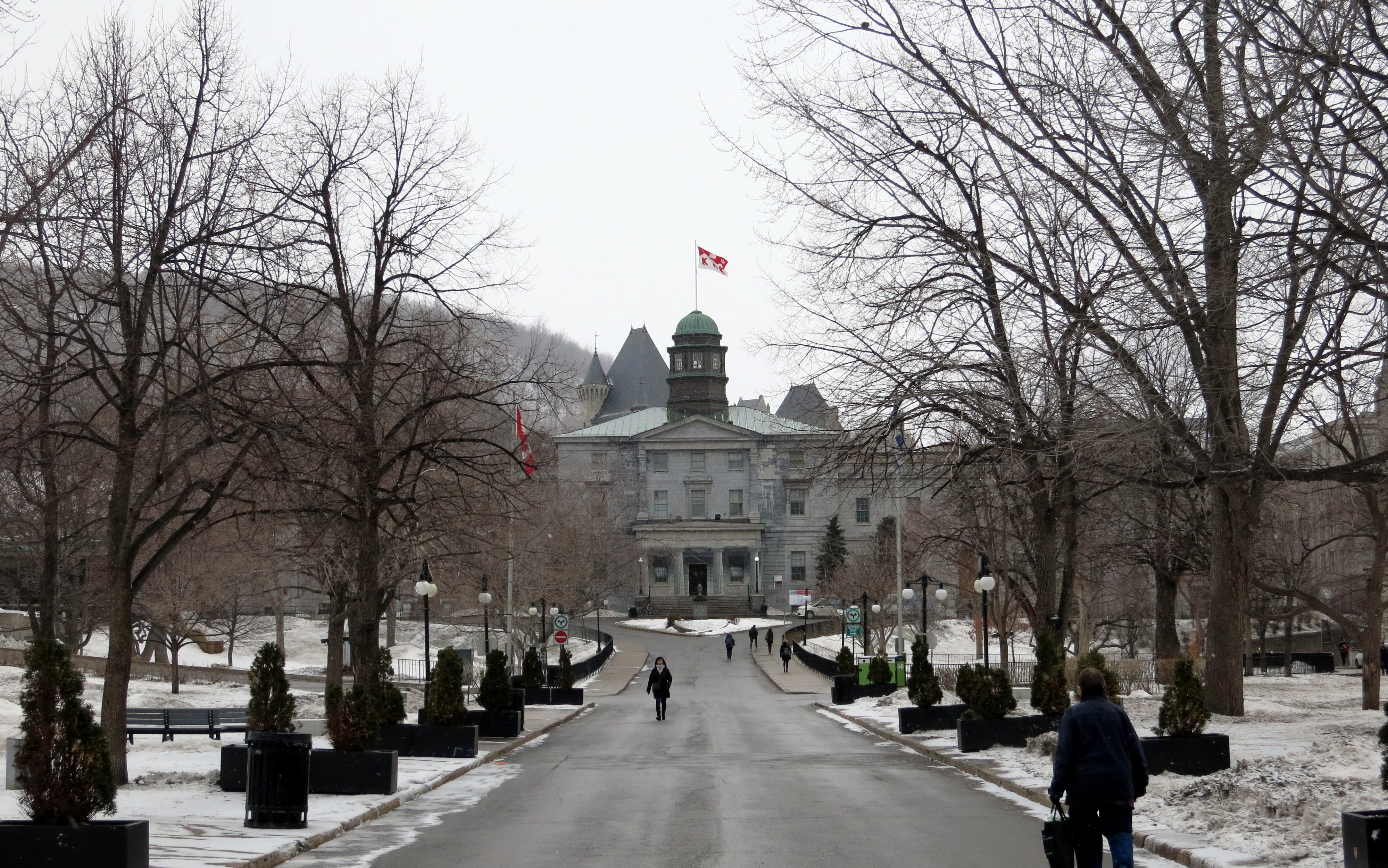Like this article? rabble is reader-supported journalism. Chip in to keep stories like these coming.
Students at Montreal’s McGill University wrote a critical open letter on April 7 to the school’s administration after the school ignored previous promises to consider student input into the development of their sexual assault policy.
“We put in all this work to create a document for them, a comprehensive, pro-survivor document and their response was that they weren’t going to move forward with it,” said Kai O’Doherty, a former McGill student who is a part of the student group who wrote the open letter.
Two years ago, a student working group began with the goal of pushing McGill University to adopt a sexual assault policy. McGill’s sexual assault policy gained national scrutiny after students on the football team were allowed to continue playing for McGill despite the fact that school officials learned that sexual assault charges had been laid against them.
According to O’Doherty the university had no policy in place at the time of the assaults and continues to lack official policy and procedures for helping the survivors of sexual assault.
“A lot of things still get dealt with ad hoc depending on which administrator is contacted. There’s no central place that a survivor of sexual assault can look to for help or for recourse or even for emergency measures such as moving residences or not having their perpetrator in their class,” said O’Doherty.
The University has committed to put forward a sexual assault policy by the end of the year. McGill University has already committed resources to the problem including appointing a liaison Coordinator with the aim of harm reduction and creating a webpage dedicated to the problem. In a recent statement McGill said that the problem of sexual assault cannot be addressed without the input of students.
“McGill’s administration continues to welcome student input in the development of a Policy on Sexual Violence. Indeed, students are presently being consulted on a draft of this Policy,” said Vincent Allaire, communication associate for McGill University’s media relations office.
Although the student group is happy that a policy will be passed and that additional resources will be assigned to the issue, they have doubts about the effectiveness of these changes.
“We don’t think this has been at all sufficient. The Harm Reduction Liaison Coordinator, Bianca Tetrault, has been given an immense amount of work to do for only one position,” said O’Doherty.
O’Doherty and others who contributed to the open letter are worried that the school created their policy internally, without consulting students or taking their concerns into consideration.
“They’re just doing it internally, which is worrying, considering a lot of the root of the problem is that the administrators in power don’t understand why things don’t work,” said O’Doherty.
O’Doherty and the student working group also feels that resources provided by students through McGill’s student services is not enough of a commitment by the university. They would like to see the administration put forward resources to help address the problem.
Although a sexual assault policy is sorely needed, the students involved in the open letter believe that it is not enough to address McGill’s current problem. The student-developed sexual assault policy proposed a three-pronged approach to address sexual assault on campus. Other than an accessible, pro-survivor sexual assault policy, students called for permanent resources including staff committed solely to sexual assault response and prevention.
Without a sexual assault policy there is no official channel at McGill that survivors can access to get either support for themselves or recourse against their assailants. The only mechanisms that students have at their disposal are informal ones. Currently the disciplinary process used for perpetrators of sexual assault is the same process used for plagiarism, which O’Doherty calls, “totally inappropriate.”
“Without hearing from the people who have been failed by the system, there’s no way to really figure out how to reform or address the problems in that system. We keep having the same people who are making the mistakes make the solutions to the mistakes,” said Kai.
The student group has received a draft copy of the schools new policy and are currently compiling comments to present to the administration. According to O’Doherty, the school’s plans have a number of differences with the student proposed plan. The student group is worried about how quickly the draft was created, as their policy proposal took two years to research, consult and create.
“We are also concerned with the policy’s lack of commitment to reviewing and changing procedures and resources. Instead, it seems to list existing resources and campaigns, with no clear commitment to future changes,” said O’Doherty.
McGill has reached out to the authors of the open letter and invited them to provide input as the university adopts their new policy on sexual violence. However, O’Doherty noted that contacting the student working group does not constitute widespread student consultation.
While the student group has concerns with how McGill is creating its sexual assault policy, they plan to keep pressure on the university and keep them accountable to their promises.
Albert Van Santvoort loves using unique, innovative ways of storytelling. He has an incredibly uncool obsession with following international and domestic news, politics and current affairs. He is a journalist who’s worked in both radio and print and he’s getting his master degree in journalism at UBC.
Like this article? rabble is reader-supported journalism. Chip in to keep stories like these coming.
Image: Flickr/Edward Bilodeau



